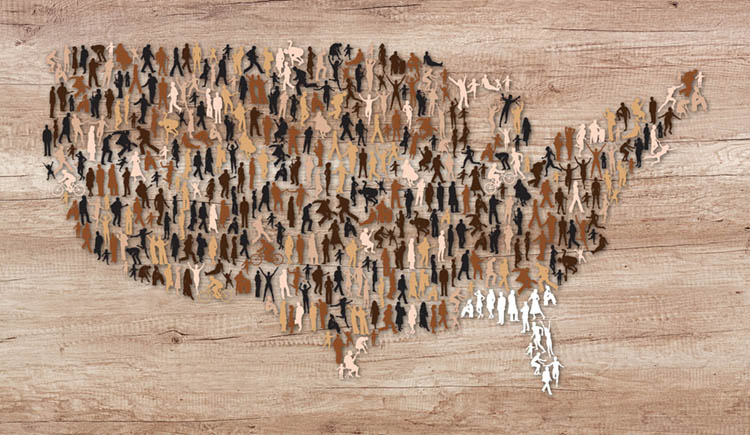ABA’s new CLE policy appears to comply with state ban on diversity ‘quotas,’ Florida Bar says

Illustration by Sara Wadford/ABA Journal/Shutterstock.
The ABA Board of Governors on Tuesday revised the association’s diversity policy for continuing legal education programs after the Florida Supreme Court banned course credit in the state for programs with panel “quotas.”
The new ABA policy eliminates numeric requirements for panel diversity while requiring organizers to meet the objectives of the association’s Goal III to eliminate bias and enhance diversity.
The new policy appears to comply with the quota ban enacted by the Florida Supreme Court in an amendment to rules regarding CLE accreditation, according to Jennifer Krell Davis, a spokeswoman for the Florida Bar.
“The Florida Bar has reviewed the ABA’s revised Diversity, Equity and Inclusion CLE Policy, and it appears to comply with Rules Regulating the Florida Bar 6-10.3(d),” Davis said Wednesday, referring to the CLE rule.
The ABA plans to ask the Florida Bar to once again accredit the association’s CLE programs.
The new ABA policy, which takes effect immediately, applies to programs sponsored or co-sponsored by the ABA, according to an ABA press release.
Regulators at the Florida Bar had refused to give course credit to state lawyers taking ABA programs last year following the Florida Supreme Court order banning panel quotas.
Continuing commitment to diversity is stressed in new policy
The new ABA policy says CLE organizers “will invite and include” moderators and faculty members to create panels to meet Goal III objectives.
“This includes, among others, moderators and faculty members from historically underrepresented communities, e.g., racial and ethnic demographic groups/people of color, women, persons with disabilities and LGBTQ+ individuals,” the new policy says.
A subcommittee of the ABA Standing Committee on Continuing Legal Education will be created to monitor ABA CLE programming. The subcommittee “will have authority to engage and assist any ABA entities found not to be in compliance with this policy” and will report its findings to the Board of Governors.
ABA President Reginald Turner commented on the new ABA policy in the press release.
“With the policy the ABA Board of Governors approved today, the ABA’s commitment to diversity and inclusion will be showcased in every CLE program it makes available to lawyers,” Turner said. “Our nation and our profession are blessed with a great diversity of people from every conceivable background. The ABA has long supported equal opportunities for all. Everyone benefits when participation in ABA programs, including our CLE panels, is maximized.”
Numerical requirements have been removed
The former ABA policy, implemented in March 2017, was more detailed regarding panel composition.
Under the old CLE policy, programs with three or more panelists, including the moderator, had to have at least one member from a diverse group. Programs with five to eight panelists had to have at least two diverse members, and programs with nine or more panelists had to have at least three diverse members.
In its April 2021 order, the Florida Supreme Court had banned CLE course approval for any program “that uses quotas based on race, ethnicity, gender, religion, national origin, disability or sexual orientation in the selection of course faculty or participants.”
The court acted after the Florida Bar’s Business Law Section enacted a diversity policy for CLE panelists that was substantially the same as the ABA’s old policy.
In December, the Florida Supreme Court reaffirmed its order in a decision that said the ABA imposes “quotas” on CLE panels, an approach that “smacks of stereotyping or naked balancing.”



